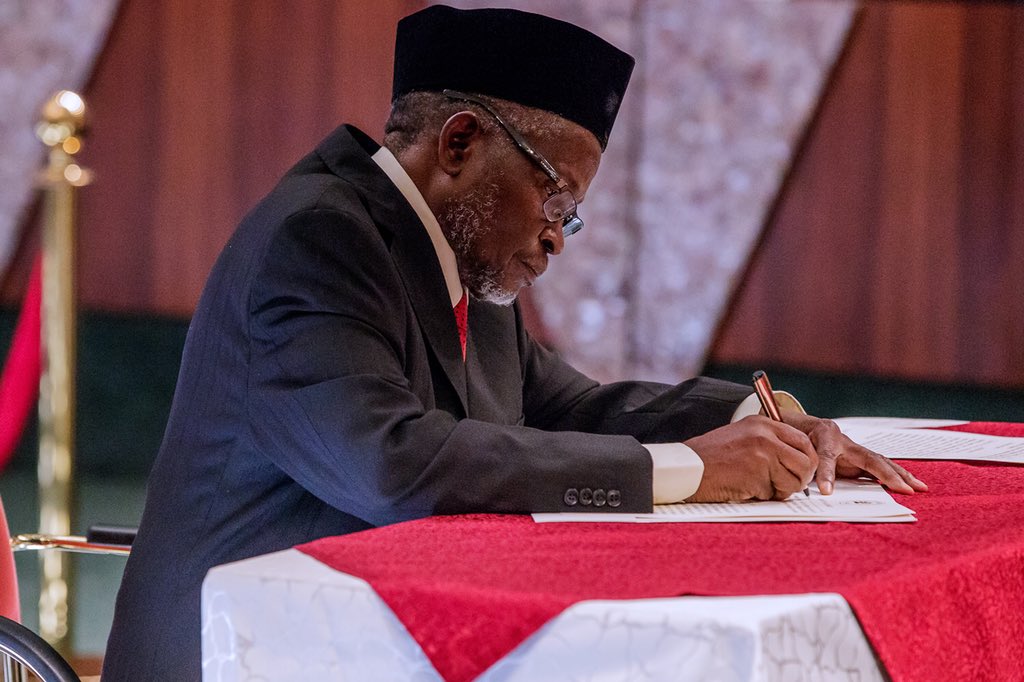The supreme court is an “ecclesiastical order’’; it sits on high looking down on the ”lowly”. It dispenses in inexorable ‘’justice’’; justice not because it is always just, but because it cannot be interrogated when it is unjust.
In the course of my career as a journalist, I have covered a good number of court cases. And I have beheld the power, glory and mesmerismo of judges.
I recall a justice of the high court who after delivering judgment on a matter, said: “Here, we judges are God. After us, whatever you don’t agree with, you can take it to God.’’ The sheer profundity of the statement hit me like a jab from Anthony Joshua.
Really, in the hands of judges lie the power of life and death. It is the reason the best of us mortals, in all aspects – intellection, integrity and morality – must be allowed on the hallowed bench.
The judiciary is a vital institution in the preservation and protection of rights and liberties, and in the maintenance of social balance; so, there cannot be room for oddities; the best and the best of us must people it.
The legislature can afford to make a mistake and emend it; the executive can afford to make a mistake and revise it, but when the last tier of the judiciary {supreme court} makes a mistake, it is irrevocable. That error will go on to become precedential law.
The presumption of infallibility of the supreme court is a prerogative that comes with great responsibility. It is dulia only reserved for the gods; why then should the head of this ‘’ecclesiastical order’’ be like mortals, and even, not the best among mortals?
In my early years, the late Justice Oputa was my impression of the archetypal supreme court judge. Oh! The intellection, the poetry, the philosophy, the depth and finesse he summarily dispatched on cases? But I came to an obverse impression after attending sessions at the apex court and heard in utter mortification the slovenly grammar and sloppy literary discharges of these ‘’celestials’’.
I have watched a video clip of the senate confirmation hearing of Ibrahim Muhammad Tanko, chief justice of Nigeria (CJN), where he blundered irrepressibly, five times. And each time my mouth is agape with incredulity. I am embarrassed for the CJN.
In fact, here is the unsettling performance in words:
Senator Eyinnaya Abaribe: “My Lord, in 2018, Akeredolu vs Abraham, I can quote the supreme court if you permit me. The supreme court said, ‘technicality in the administration of justice, shuts out justice. it is, therefore, better to have a case heard or determined on its merit than to leave the court with the shield of victory obtained on a mere technicality.”
“But my lord, just a few weeks ago, the supreme court also said and I quote, ‘The correct order to make is to declare the judgement of the trial tribunal a nullity as a result of one of the panelists not sitting on a day when proceedings were held’. And Nigerians are really worried, we would like to know where this supreme court will be situated under you?”
In response, Muhammad defined technicality, saying there are technicalities in Nigerian laws because the laws were inherited from the British.
He said he could not “drive a plane” because of the technicalities involved, adding that: “If something which is technical comes before the court, what we do in trial courts is to ask people who are experts in that field to come and testify. We rely on their testimony because they are experts in that field.’’
My Lord, you dropped a clanger, but in my court I will pardon you for ‘’authoritative gaffing’’.
@FredrickNwabufo

